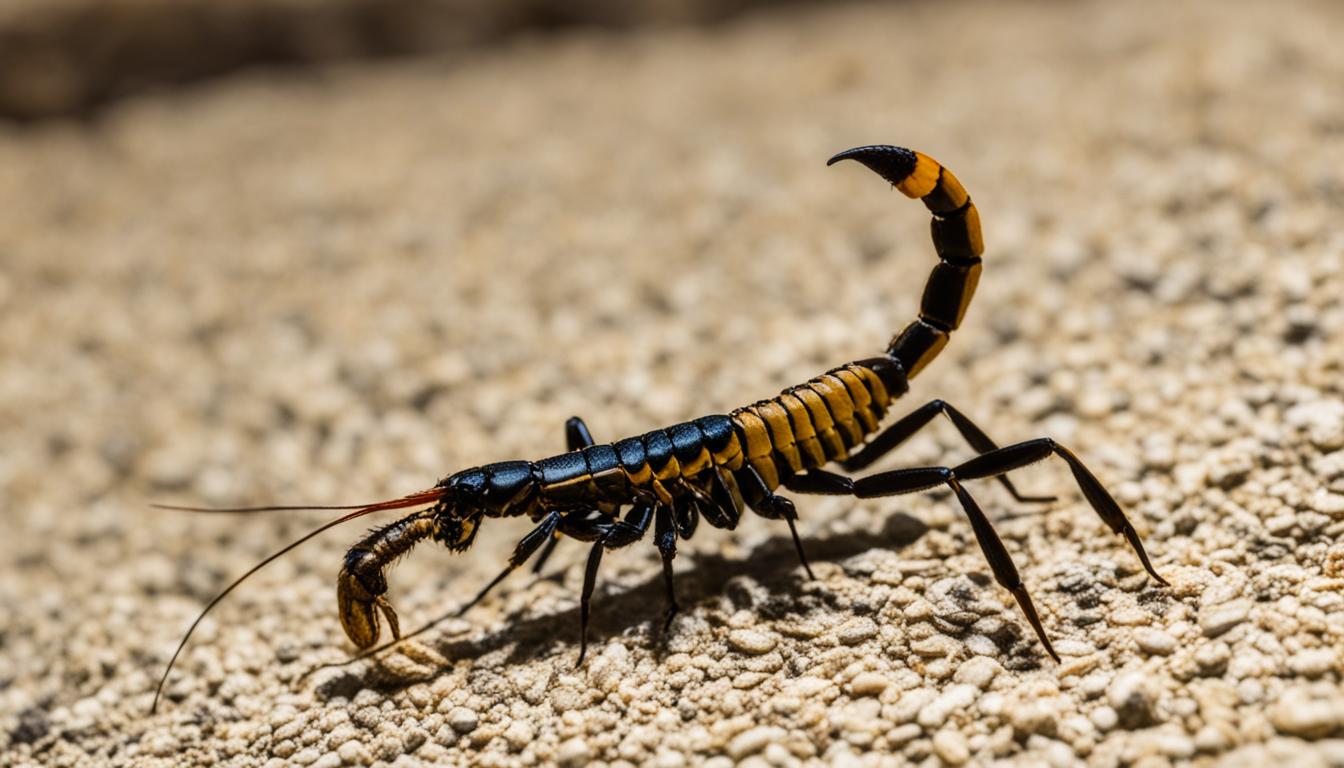Scorpion stings can be very dangerous, especially in places like Africa, India, and Latin America. The venom they release can lead to serious issues like your heart and lungs failing. This happens because the venom affects different parts of the body, like the heart, lungs, and brain. The type and amount of venom determine how bad these symptoms can get. Quick diagnosis and action are key, especially in severe cases. Treatment usually involves special antivenom and care to support the body.
Recently, doctors have started using stem cell therapy to help patients with scorpion stings in Thailand. This new treatment might offer better recovery options for affected individuals.
Key Takeaways:
- Scorpion sting disease is a life-threatening condition prevalent in tropical and subtropical regions.
- Symptoms can include serious issues with the heart, lungs, and brain.
- Quick diagnosis and treatment are really important.
- Doctors often give antivenom and care for the patient.
- Stem cell therapy is showing good results in treating these severe cases.
Epidemiology and Clinical Manifestations of Scorpion Sting
Scorpion envenomation is a significant health concern in some places with not a lot of resources and warm, wet weather. Every year, over a million people worldwide get stung by scorpions. This makes the yearly rate about 20 stings for every 100,000 people. Though anyone can get stung, it’s more common in young folks. Kids, in particular, face more severe problems because they’re smaller. Scorpion stings happen more often when it’s warm or rainy.
The effects of a scorpion sting can be minor like pain or swelling where you got stung. But they can also become very serious, leading to problems like heart issues, trouble breathing, or even kidney damage.
How bad the symptoms get can really depend. For some, it might just be a little pain at the sting site. But for others, it could mean a trip to the emergency room. The reaction is personal and not easy to predict.
Here are some common symptoms:
- Localized pain and swelling at the site of the sting
- Numbness or a pins-and-needles feeling
- Having muscle spasms or cramps
- Feeling restless or anxious
In the worst cases:
- There could be a sudden heart problem
- Someone might struggle to breathe
- They could have seizures or even end up paralyzed
- It might hurt their kidneys badly
The seriousness of a scorpion sting varies a lot. Which kind of scorpion bit you and how much venom you got make a big difference. Getting quick medical help is key for bad cases to avoid lasting harm.
Pathophysiology and Treatment of Scorpion Sting
Scorpion venom is a powerful mix of toxins. It can affect many parts of the body. It acts on the autonomic nervous system, causing problems like blood clotting and the release of substances that cause inflammation.
It also messes with sodium and potassium channels in our cells. This action makes cells stay charged longer than they should. It interrupts how nerves send messages, leading to more problems in our nervous system.
Scorpion venom’s effects reach far, harming the heart, the blood vessels, and the way blood clots. These issues happen because the venom messes up how our cells work. This can cause problems in many parts of our body.
To treat a bad scorpion sting, identifying it early is key. It’s important to use antivenom quickly to neutralize the venom. Helping the heart and lungs, and looking after the whole body, also makes a big difference in the patient getting better.
Caring for someone stung by a scorpion means managing their pain and helping them breathe. It includes fixing any lung fluid build-up or kidney damage. By combining antivenom and good care, doctors can help the patient heal from the venom’s harm.
Summary of Scorpion Sting Treatment
| Treatment | Benefit |
|---|---|
| Antivenom Serum | Neutralizes scorpion venom and reduces symptoms |
| Comprehensive Cardiovascular Support | Manages cardiovascular complications and maintains stability |
| Respiratory Support | Aids in maintaining proper oxygenation and ventilation |
| Pain Management | Relieves discomfort associated with the sting |
| Treatment of Complications | Addresses secondary complications such as pulmonary edema and renal injury |
Conclusion
Scorpion sting disease is a big problem in areas where they live. To deal with it, quick diagnosis and the right care are needed. Antivenom is the main treatment for bad cases. But new methods, like using stem cells, are being looked into to help patients get better. These new ways give hope for treating scorpion stings in Thailand better.
To really make a difference, stopping scorpion stings is key. This means making sure people know how to avoid getting stung. It also involves controlling the scorpion population and teaching people what to do if they get stung. By doing these things, the hope is to lower the number of people who get hurt by scorpions. This makes life better for many.
Thanks to better ways to treat and prevent scorpion stings, we’re seeing a light at the end of the tunnel. Research and working together are crucial. By joining forces, doctors, scientists, and leaders can find new ways to treat and prevent these stings. This teamwork can make Thailand safer and reduce the chances of scorpions harming people. Together, we can create a future with fewer scorpion stings.

